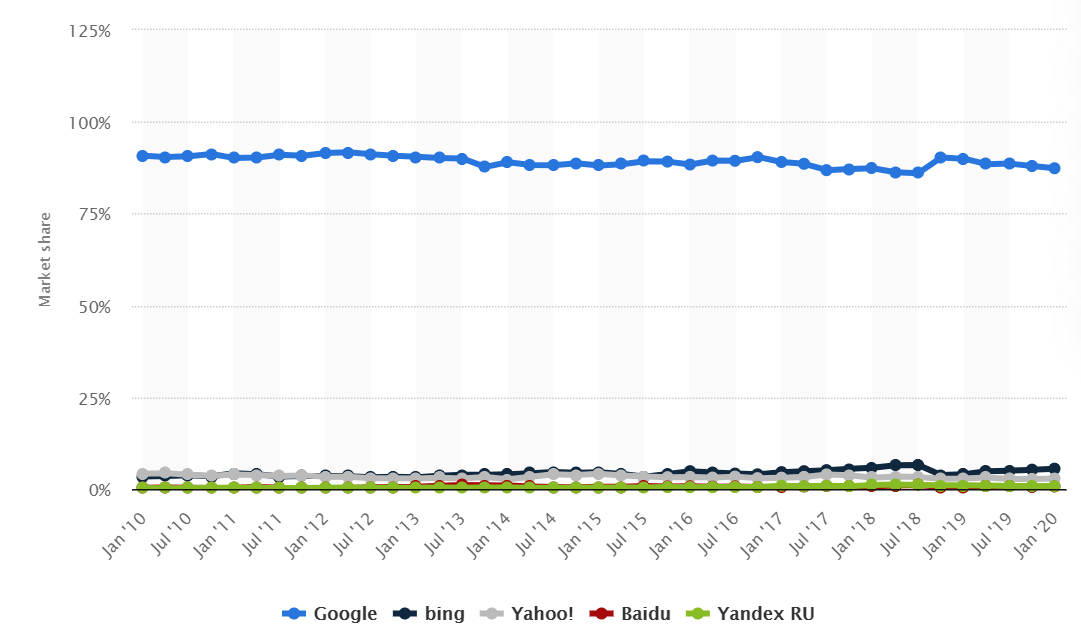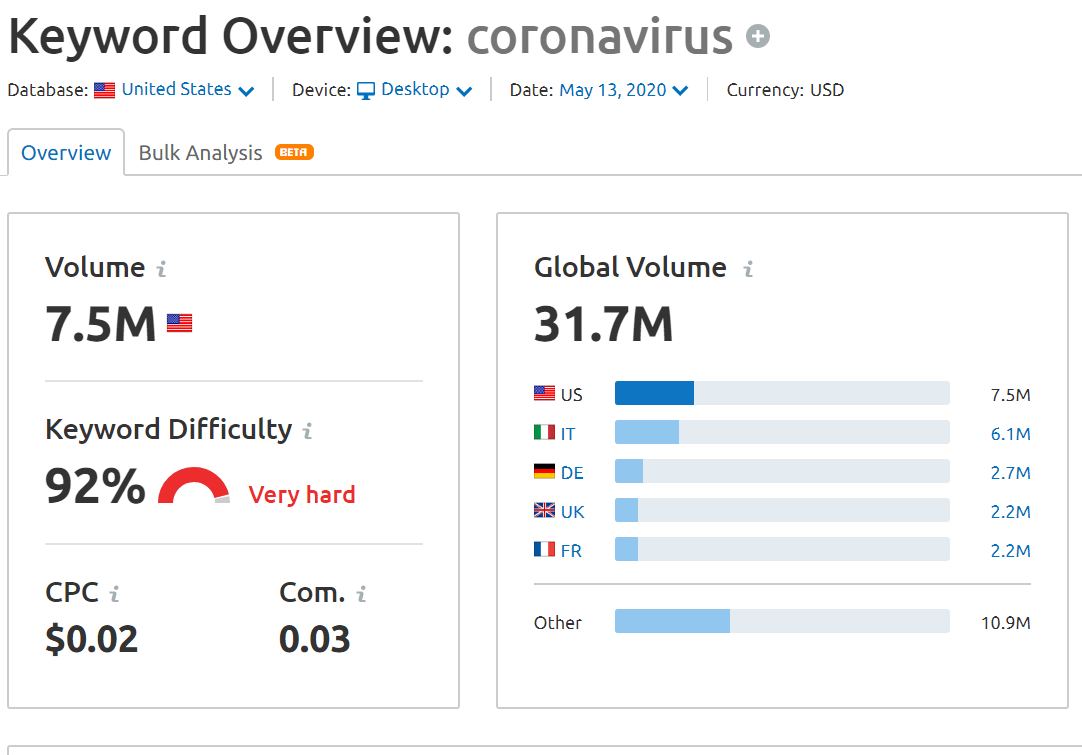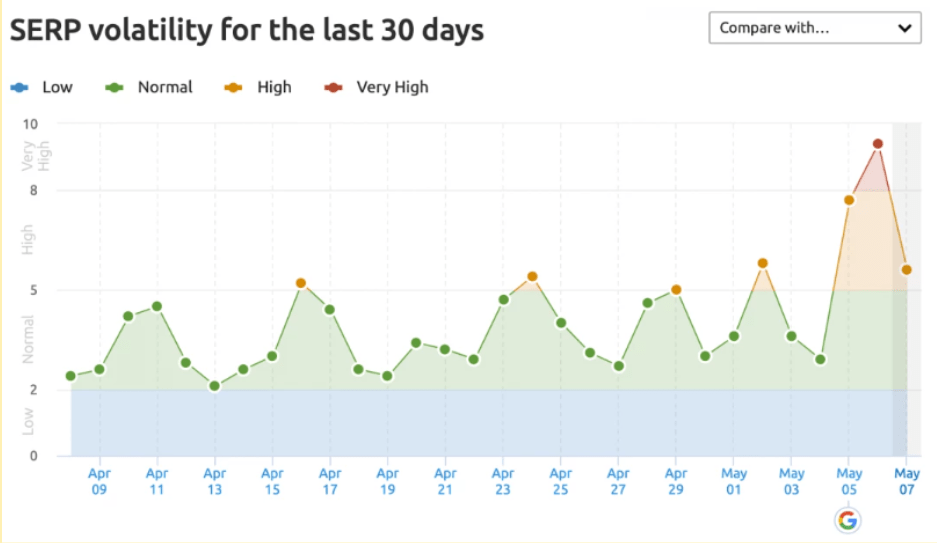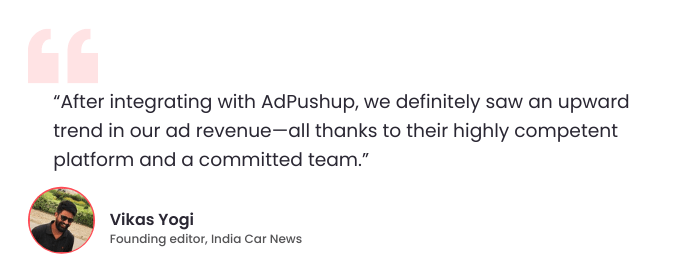Google is committed to improving search results for all internet users. Almost everyday, one or more algorithm updates are rolled out from the company’s end that normally have negligible impact on website ranking.
But once in a while, a Google core algorithm update, also called the broad core algorithm update is rolled out that may have a massive impact on the ranking of publishers’ websites.
Most of these core algorithm updates are directed at improving search results for all internet users. So it’s natural that website rankings may increase or decrease for most publishers.
In this post, we cover what the update entails, what publishers can do once it’s rolled out, and what Google recommends.
About Google Core Algorithm Updates
For an average internet user, Google search is always the primary source of information for any query. And the statistics reflect likewise.
According to Statista, Google has consistently dominated the search engine market since 2010. As of January 2020, the company held 87.35% share of the search engine market.

For this reason, Google consistently rolls out updates that can improve search results. This is achieved by focusing on the user intent instead of keyword. Search has therefore evolved from displaying results based on keyword matching, to actually understanding the objective of the user’s question.
This is where Google core algorithm update plays a key role. While daily updates might be aimed at something minor, core algorithm updates are always aimed at improving search results according to user intent.
When this happens, website traffic could drop drastically for some publishers. Similarly, it can also go noticeably up for others. Additionally, timing also matters, as search trends during the update’s roll-out can also impact traffic.
How Core Updates Affect Rankings
To understand the above explanation better, let’s consider the example of the broad core algorithm update rolled out in May, 2020.
The important thing to remember is that this update was rolled out with the socio-political background of COVID-19.
Inadvertently, search queries since February 2020 have been dominated by coronavirus-related questions. Additionally, since a lockdown is being implemented in most countries, queries related to tourism, food outlets, events, etc. have reduced considerably.

It takes approximately 2 weeks to determine the impact of a Google core algorithm update. However, the impact of the May 2020 update was quite widespread and sudden. Here’s how SEMRush reported SERP volatility in the next 2 days of the update:

As is evident from the image, the broad core algorithm update has had a colossal impact on SERP volatility.
Travel, retail, health, and finance related websites were impacted the most. This possibly because of search queries occurring in the backdrop of COVID-19. A majority of publishers reported low traffic on their websites.
News publishers, on the other hand, have benefitted the most from this update. Following Google’s recommendation on maintaining the E-A-T Score (we’ll get to this later) and aggressive covering of coronavirus-related news were some of the reasons industry-experts cited for this development.
What Google Recommends
Google has iterated that broad core algorithm updates do not impact any websites specifically. The change is more widespread and seldom, there might be no change at all. In that case, there is no absolute way to improve your rankings if they are negatively impacted by the update. However, here’s what Google still recommends:
- Provide more in-depth analysis, original content, and accurate reporting
- Describe topics as comprehensively as possible
- Write content that provides more insights than obvious information
- Avoid plagiarism, and if quoting is necessary, use well rephrased content
- Write title or headlines that aren’t shocking in nature, rather are helpful and descriptive
- Invest more time in creating error-free, grammatically correct, well-produced content
- Write content that actually contains valuable information
- Quote your resources and write content that a user can trust
- Consider including an expert for creating content as topics will be covered better in that case
Google also recommends analyzing your website within the E-A-T Score framework.
EAT stands for Expertise, Authoritativeness, and Trustworthiness. Here are some ways to improve your E-A-T score:
- Include author bylines at the end of each post. When you include some information about the author at the end of each post, you establish credibility and more trust in the readers.
- Consider auditing the content of your website whenever possible. This way, you can remove or trim poor/outdated content which could be impacting your performance.
- Improve the authority of your brand by adding an About Us section in your website. This will help readers learn more about your background in case they are intrigued by your content.
- Consistently use high-quality backlinks in your website content. Owing to previous algorithm updates, it is the quality of backlinks that helps rank your website better and not the quantity.

Other Things Publishers Can Do
Since most publishers by now are aware of the magnitude of core updates’ impact, the next step is understanding how to determine how it has affected your website and make improvements. Here are some methods that publishers can use for improving their website rankings:
Check Your Web Analytics
The first thing that publishers must do is have a look at their web analytics. In case it’s Google Analytics, it should be fairly easy to view traffic and user related reports. Even if the update has positively impacted your website, it is advised to still determine what factors worked for your rankings, in order to capitalize on them further.
Also Read: A Complete Beginner’s Guide to Google Analytics

Analyze Data from Google Search Console
Publishers should not underestimate the power of data and what better way to obtain it from the Google Search Console. Using that, many important factors that could be impacting your rankings can be found out including which keywords are performing the best and the worst, which pages are ranking good and which ones went down, etc. These reports can help publishers in devising a strategy which can help them improve their rankings, post the update.
Pay Attention to Competitors
Most publishers have organic competitors and if their website has been positively impacted, all webmasters must do a thorough research in understanding how that is the case. Some ways to do that is:
- Compare Keywords: Do you and your competitor have a post on the same keyword? If theirs is performing better, use the E-A-T Score to determine what are the missing elements in your post.
- Compare Website Traffic: You can use domain overview tools such as SEMRush, SimilarWeb, etc. in order to assess how your competitors are getting impacted by the update. In case your website is performing better, this could very well be an opportunity to analyze those factors and improve more on them.
Educating Self with Valuable Resources
Apart from tracking and analyzing reports and other data, it is imperative for all publishers that they actively read and educate themselves with valuable resources. Google itself has many documents and courses that can help publishers in understanding how search works and ways to get more traffic and better ranking. Here we have compiled a list of such resources:
- Google’s Webmasters Academy Course
- Guidance on building high-quality websites
- Search Quality Rater Guidelines
- Leveraging E-A-T for SEO Success
Closing Thoughts
Witnessing a decline in traffic can be quite discouraging for most publishers, especially if the site was performing fairly well before the Google core algorithm update. However, it is important to note that website traffic is always volatile and this could be a learning opportunity for most publishers to start improving their website’s overall content.

Shubham is a digital marketer with rich experience working in the advertisement technology industry. He has vast experience in the programmatic industry, driving business strategy and scaling functions including but not limited to growth and marketing, Operations, process optimization, and Sales.






1 Comment
Great insights, there was an opinion that May Core update was all about adjusting to the pandemic trends in users’ intent. What do you guys think?